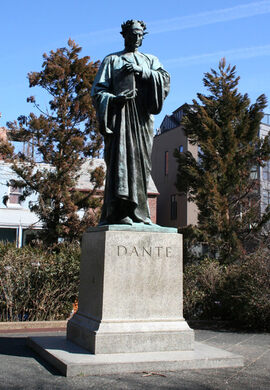The name of esteemed playwright Anton Chekhov typically assumes an air of seriousness, even despair. However, Chekhov himself purported that his works were comedies, despite the often grave themes on which he based his plays. To see The Cherry Orchard, his 1904 play, as a comedy, one must look beyond the historical context of the fall of Russian aristocracy to find humor in the characters’ struggles for love and money. Classic Italian theatre style commedia dell’arte provides the perfect vehicle for this quest, illuminating the absurd in daily life and creating a farce out of this famed play.
The Cherry Orchard takes us back to Russia at the turn of the century and follows aristocrat Lubov Ranevsky as she returns to her family’s estate after spending five years in Paris. She arrives at the estate only to learn that the house and its beloved cherry orchard are in a state of decline. In the midst of the fall of Russian feudal traditions, the estate’s groundskeepers and servants have gained freedom, thus abandoning the orchard and its art of preserving fruit. It seems that Lubov’s only hope falls on the shoulders of Ermolai Lopakhin, a wealthy businessman whose grandparents worked as serfs on the estate. Ermolai proposes to Lubov that he turn the estate into lucrative villas and save the Ranevsky family from debt. At first glance, this heavy plot seems difficult to transform into anything but the somber plight of a wealthy aristocrat and her land; yet, Faction of Fools Theatre Company morphs Chekhov’s work into a barrel of laughs in true commedia spirit.
Under the direction of Paul Reisman, Faction of Fools’ entire cast boasts committed, energetic performances. The show opens with the jolly Ermolai (Kathryn Zoerb), who takes the the stage with precisely choreographed physical comedy and a memorable voice. Over-the-top Ermolai is the perfect complement to dramatic heiress Lubov (Sara Barker) and her daughter Varya (Julia Klavans). Barker shines in her role with humorous, yet not overly exaggerated, reactions and a hilarious moment of seduction-gone-wrong. Similarly, Klavans takes on the homely Varya with a relatable persona that helps ground the farce. Both women elicit empathy from the audience in their awkward misadventures in love and seduction.
 |
| Jesse Terrill and Julia Klavans. Photo credit: C. Stanley Photography. Courtesy of Faction of Fools. |
Featured actors of the show, several of whom take on multiple characters, create depth and consistency with their skillful choreography, humorous foils, and engaging reactions. Jack Novak keeps the audience laughing as both Fiers, the hunched-over, elderly former servant, and Yasha, the valet who takes on a lofty sense of self after his sojourn in Paris. The two men could not be more different, but Novak adeptly executes their physical contrasts. Novak’s Yasha is modern comic relief, guzzling champagne (which the expat quickly criticizes as artificial) to endure the mundane affairs of those he left behind in Russia. Francesca Chilcote accompanies Yasha in nearly every corner of the house as her character, the servant Dunyasha, desperately throws herself at him throughout the show. Chilcote consistently delivers a true commedia performance by delivering her dialogue with absurd physical comedy.
 |
| Sara Barker, Francesca Chilcote, and Kathryn Zoerb (Front). Photo Credit: C. Stanley Photography. Courtesy of Faction of Fools. |
The technical team of Faction of Fools mirrors the actors by painting 20th century Russia with colors of farce and historical realism. Ethan Sinnott’s set adapts for levels and uses various doors and windows to enable physical comedy. Painted trees in the background remind the audience of the estate’s famous cherry orchard.
Costumes are essential to the translation of this work from tragic to comedic. Kitt Crescenzo pays tribute to commedia dell’arte with the incorporation of masks and makeup to enhance the characters personas. Elegant gowns and frayed shawls thoughtfully reflect the period of socioeconomic change by illuminating the class divisions amongst characters.
For a company to take on Chekhov with anything short of utmost solemnity seems unorthodox, but Faction of Fools’ interpretation implores viewers to question if The Cherry Orchard was intended for comedy or tragedy in the first place. By incorporating themes and elements of traditional commedia dell’arte, the show pays tribute to a form of theatre that begs audiences to find humor in everything. With energetic actors and detailed direction, Faction of Fools’ The Cherry Orchard breathes new life into classic art.
See Faction of Fools'
The Cherry Orchard at Gallaudet University's Eastman Studio Theatre (Elstad Annex) from May 18th - June 10th. For tickets and more information, visit
factionoffools.org.
Published by Maria Regina, Contributing Editor
































